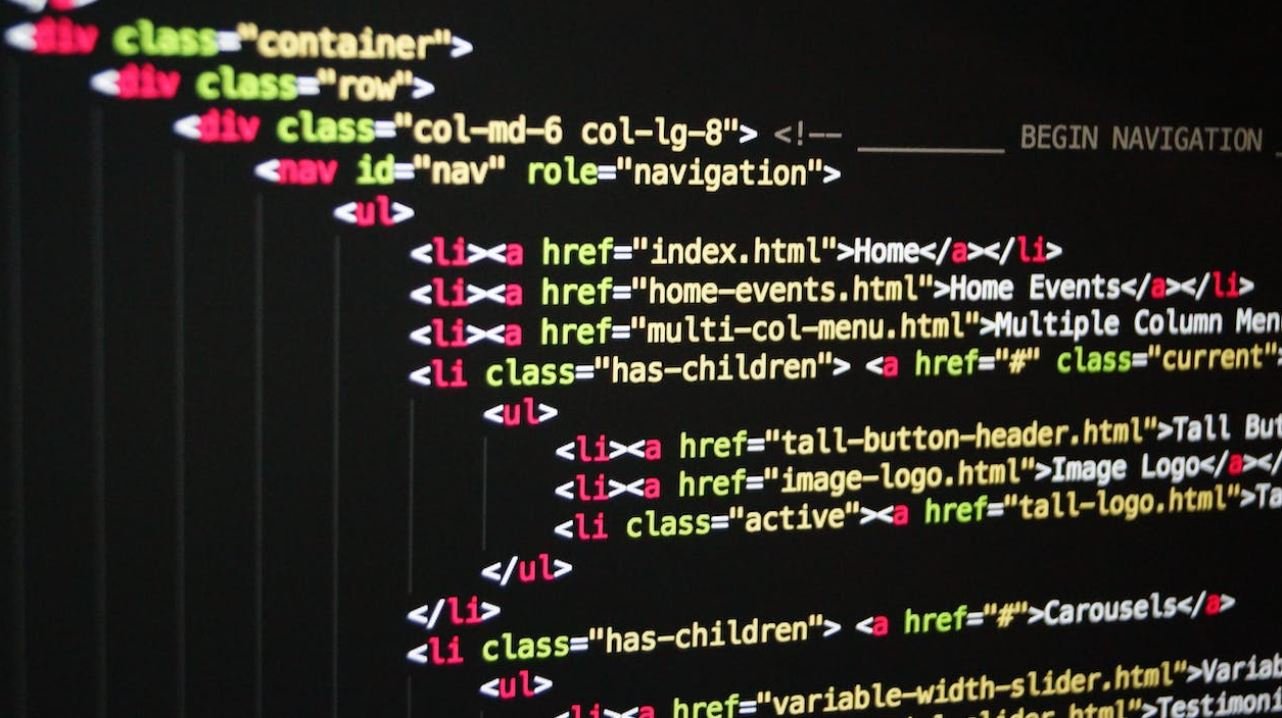AI Apps Used in Education
Artificial intelligence (AI) is revolutionizing various industries, and education is no exception. AI apps are transforming the way students learn and teachers teach, providing personalized learning experiences. These apps can assist with educational tasks such as grading assignments, tutoring, and even generating content. In this article, we will explore the benefits of using AI apps in education and some noteworthy examples that are reshaping the learning landscape.
Key Takeaways:
- AI apps are revolutionizing education by providing personalized learning experiences.
- These apps can assist with grading assignments, tutoring, and generating content.
- AI apps help in identifying individual strengths and weaknesses, helping teachers customize instruction.
- They offer 24/7 access to learning resources and support for students.
One of the key advantages of AI apps in education is their ability to customize instruction based on each student’s needs. *With AI-powered algorithms*, these apps can assess a student’s existing knowledge and adapt the learning material accordingly. This personalized approach helps students progress at their own pace, filling in knowledge gaps and building on their strengths.
AI apps are also transforming the cumbersome task of grading assignments. *Through natural language processing and machine learning*, these apps can analyze and assess students’ work, providing immediate feedback. This saves teachers valuable time and allows them to focus on supporting students rather than getting buried in paperwork.
In addition to personalized instruction and grading assistance, AI apps offer a wide range of 24/7 learning resources and support. *Powered by AI-empowered chatbots*, students can receive instant help with their questions, access additional learning materials, and receive guidance on topics they are struggling with. This round-the-clock support ensures that students have the resources they need to succeed, even outside of traditional classroom hours.
AI Apps in Action
Let’s take a closer look at some noteworthy AI apps that are making waves in the education sector:
Table 1: AI Apps Revolutionizing Education
| App Name | Function | Benefits |
|---|---|---|
| 1. ScribeSense | Automated grading and feedback | – Speeds up grading process. – Generates detailed feedback for improvement. |
| 2. Duolingo | Language learning and practice | – Adaptive learning based on user performance. – Engaging and gamified experience. |
| 3. Brainly | Peer-to-peer learning and homework help | – Connects students to a global community. – Provides quick answers and explanations. |
These examples represent just a fraction of the AI apps currently transforming the education landscape. *By leveraging the power of AI*, these apps offer students customized learning experiences, assist teachers with administrative tasks, and provide round-the-clock support. As AI technology continues to advance, we can expect even more innovative apps to enhance education in the future.
Table 2: Benefits of AI Apps in Education
| Benefits | Explanation |
|---|---|
| 1. Personalized Learning | AI apps adapt learning material to individual students’ needs. |
| 2. Efficient Grading | Automated grading saves teachers time and provides immediate feedback. |
| 3. 24/7 Support | AI-powered chatbots offer assistance and resources outside of classroom hours. |
To sum up, AI apps are revolutionizing education, empowering both students and teachers with personalized learning experiences, improved grading processes, and round-the-clock support. With advancements in AI technology, the future of education looks promising, as we witness the continued integration of AI apps in classrooms worldwide.
Table 3: Noteworthy AI Apps
| App Name | Main Function |
|---|---|
| ScribeSense | Automated grading and feedback |
| Duolingo | Language learning and practice |
| Brainly | Peer-to-peer learning and homework help |

Common Misconceptions
Misconception 1: AI apps can replace teachers
One common misconception about AI apps used in education is that they can replace teachers entirely. While AI apps can support and enhance the learning process, they cannot completely replace the role of a teacher. Teachers provide personalized guidance, emotional support, and human interaction, which are essential for an effective learning experience.
- AI apps can assist with grading and providing feedback, but they cannot replace a teacher’s ability to understand a student’s individual needs.
- AI apps can provide information and resources, but they cannot replace the guidance and expertise that teachers provide in explaining complex concepts.
- AI apps may lack the ability to foster social and emotional skills, such as empathy and collaboration, which are nurtured through face-to-face interactions with teachers and peers.
Misconception 2: AI apps only benefit high-achieving students
Another misconception is that AI apps are only beneficial for high-achieving students. In reality, AI apps can cater to the needs of students across all levels of performance. They can provide tailored learning experiences, adapt to individual learning styles, and offer extra support to struggling students.
- AI apps can provide personalized recommendations and adaptive content to meet the specific learning needs of each student, regardless of their academic level.
- Struggling students can receive targeted interventions and additional practice through AI apps, helping them catch up to their peers.
- High-achieving students can be challenged with advanced content and engage in deeper learning through AI-powered extensions.
Misconception 3: AI apps are bias-free and objective
A common misconception is that AI apps used in education are completely bias-free and objective. However, AI systems are trained on data that may contain biases, and these biases can be reflected in the app’s outputs. It is crucial to understand and address these biases to ensure fair and equitable use of AI in education.
- AI apps can unintentionally perpetuate biases present in the training data, leading to unequal learning opportunities for certain groups of students.
- Human bias can also be embedded in the design and algorithms of AI apps, affecting the quality and fairness of the learning experience.
- Evaluating and auditing AI apps for bias is essential to promote equity and inclusivity in education.
Misconception 4: AI apps isolate students from social interactions
Another misconception is that AI apps used in education isolate students from social interactions. While AI apps may involve personalized learning experiences, they can also be designed to promote collaboration, interaction, and social learning among students.
- AI apps can facilitate peer collaboration and enable students to work together on projects, assignments, and discussions.
- Virtual classrooms powered by AI can provide platforms for communication and interaction, enhancing the sense of community and fostering social connections.
- AI apps can offer opportunities for students to engage in group activities, simulations, and role-playing exercises, promoting social skills development.
Misconception 5: AI apps are too expensive for schools and districts
Some believe that AI apps are too expensive for schools and districts to implement. While developing and implementing AI apps may require an upfront investment, the long-term benefits and potential cost savings can outweigh the initial costs.
- AI apps can automate administrative tasks, such as grading, data analysis, and report generation, reducing the workload and time spent by teachers.
- By personalizing learning experiences and providing targeted interventions, AI apps can potentially improve student outcomes and reduce the need for costly remedial programs.
- As the technology evolves and becomes more accessible, the cost of AI apps is likely to decrease, making them more affordable and feasible for schools and districts.

AI Apps Used in Education: A Game-Changer for Students
Artificial Intelligence (AI) has revolutionized numerous industries, and education is no exception. AI-powered applications have significantly transformed the way students learn and acquire knowledge. From personalized learning experiences to virtual tutors, these innovative tools have become essential in modern classrooms. Below, we highlight ten captivating examples of AI apps used in education that are revolutionizing the learning process.
Enhanced Language Learning: Duolingo
Duolingo is an AI-powered language learning app that adapts and personalizes lessons based on the learner’s proficiency and progress. With gamified quizzes, interactive exercises, and instant feedback, it facilitates natural language acquisition while making the process engaging and enjoyable.
Intelligent Tutoring: Carnegie Learning
Carnegie Learning utilizes AI algorithms to provide individualized tutoring to students, analyzing their strengths and weaknesses to offer tailored lesson plans. It adapts in real-time, ensuring students receive customized support and guidance, ultimately improving their understanding and success rates.
Personalized Math Instruction: DreamBox Learning
DreamBox Learning combines adaptive AI technology with gamification to provide children with personalized math instruction. By analyzing a student’s performance and adjusting difficulty levels accordingly, it fosters a deep understanding of mathematical concepts while keeping students motivated and engaged.
Virtual Classroom Assistant: Socratic
Socratic is an AI-powered virtual classroom assistant that answers students’ questions and provides detailed explanations for various academic subjects. By using a combination of image recognition, natural language processing, and AI algorithms, it helps students better comprehend complex topics.
Augmented Reality Lab Experiences: Labster
Labster offers augmented reality lab simulations, allowing students to conduct experiments virtually. By integrating AI, it provides authentic lab experiences with real-time feedback and guidance, enabling students to develop practical skills and enhance their scientific understanding.
Intelligent Online Course Design: Smart Sparrow
Smart Sparrow utilizes AI to create interactive online courses that adapt to students’ learning styles and pace. It provides individualized feedback, suggestions, and remediation, ensuring an optimized learning experience for each student, regardless of their prior knowledge or abilities.
Adaptive Learning Platform: Knewton
Knewton employs AI algorithms to deliver adaptive learning experiences, tailoring content based on students’ specific needs and proficiency. It tracks learners’ progress, identifies knowledge gaps, and provides personalized recommendations, facilitating efficient and personalized learning journeys.
Virtual Writing Tutor: Grammarly
Grammarly is an AI-powered application that assists students in improving their writing skills. It detects and corrects grammar errors, suggests style improvements, and provides recommendations for clarity, helping students refine their written communication and express their ideas more effectively.
Intelligent Plagiarism Checker: Turnitin
Turnitin uses AI algorithms to detect similarities between students’ work and other sources, ensuring academic integrity. By scanning vast databases of published works and student submissions, it helps educators identify instances of plagiarism and uphold academic honesty standards.
Social Learning Platform: Peergrade
Peergrade is an AI-enabled social learning platform that facilitates peer feedback and learning assessment. By automating the feedback process, it enhances collaboration, critical thinking, and creativity among students, while also reducing the time and effort required from instructors.
AI apps have truly revolutionized education, offering personalized and adaptive learning experiences that cater to each student’s individual needs. By fostering engagement, motivation, and deeper understanding, these intelligent tools have proven to be invaluable resources in modern classrooms.
Frequently Asked Questions
What are AI apps used in education?
AI apps used in education refer to applications that incorporate artificial intelligence technologies to enhance the learning experience of students. These apps can provide personalized and adaptive learning, intelligent tutoring, automated grading, and other educational features.
How do AI apps benefit the education system?
AI apps can benefit the education system in various ways. They can provide personalized learning experiences that suit individual student needs. These apps can also automate administrative tasks, such as grading, allowing teachers to focus on more impactful activities. Additionally, AI apps can analyze large amounts of data to identify areas for improvement and provide tailored feedback to students.
What types of AI apps are commonly used in education?
Common types of AI apps used in education include intelligent tutoring systems, virtual learning assistants, language learning apps, adaptive learning platforms, plagiarism detection tools, and automated grading systems. These apps leverage AI techniques such as machine learning, natural language processing, and computer vision to improve the educational experience.
Can AI apps replace human teachers?
No, AI apps cannot fully replace human teachers. While AI apps can provide personalized learning experiences and assist in certain educational tasks, human teachers play a crucial role in providing guidance, emotional support, and facilitating social interactions in the classroom. AI apps serve as tools to enhance instruction, not to replace it.
Are AI apps suitable for all educational levels?
AI apps can be designed to cater to different educational levels, from elementary school to higher education. The functionalities and complexity of the apps can vary depending on the target audience. For younger students, AI apps may focus on gamified learning experiences, while for higher education, AI apps may provide advanced analytics and research tools.
How can AI apps promote inclusivity in education?
AI apps can promote inclusivity in education by providing personalized learning experiences that cater to different learning styles, abilities, and preferences. These apps can adapt to individual students’ needs, offer additional resources for struggling students, and provide real-time feedback to foster continuous improvement. Furthermore, AI apps can facilitate language translation and assist students with disabilities in accessing educational content.
What are the privacy concerns associated with AI apps in education?
Privacy concerns associated with AI apps in education include the collection and storage of student data, the security of personal information, and the potential for data breaches. It is crucial for educational institutions and developers of AI apps to implement strict privacy policies, ensure data encryption, and obtain proper consent for data usage. Transparency and clear communication regarding data practices are essential to address privacy concerns.
How can educators ensure the ethical use of AI apps in education?
Educators can ensure the ethical use of AI apps in education by carefully selecting apps that align with ethical guidelines and principles. They should consider factors such as data privacy, algorithmic bias, and fairness when choosing and implementing AI apps. There should also be clear guidelines and policies in place to address issues such as data ownership, data access, and accountability.
What are some examples of AI apps used in education?
Some examples of AI apps used in education include Duolingo, a language learning app that uses AI to adapt to students’ language proficiency and provide personalized lessons, and Khan Academy, an online learning platform that offers personalized recommendations and feedback to students. Another example is Turnitin, a plagiarism detection tool that uses AI algorithms to analyze and compare students’ work against a vast database of academic resources.
What is the future of AI apps in education?
The future of AI apps in education holds tremendous potential. As AI technology advances, we can expect more sophisticated apps that offer even more personalized and adaptive learning experiences, advanced analytics for educational institutions, and AI-powered virtual reality learning environments. Additionally, AI apps may play a role in addressing the global challenges of education, such as reaching remote areas with limited resources and facilitating lifelong learning.





